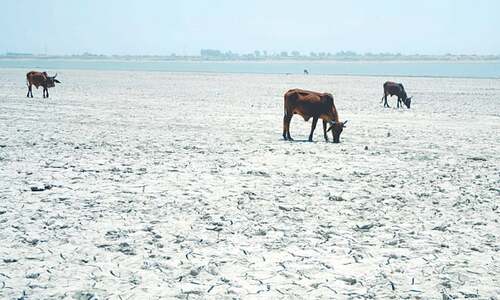ISLAMABAD: The River Indus delivers around 10,000 tonnes of macro-plastics to the Arabian Sea each year, according to a World Bank survey made available on Saturday.
The survey, titled ‘Plastic Waste: A Journey Down the Indus River Basin in Pakistan’, is a first-of-its-kind field study undertaken along the Indus river basin to quantify the amount of waste, particularly plastics, leaking into the river system.
It warned that the perennial presence of plastic waste in the Indus and its tributaries is a recent addition to the already extensive list of threats to water quality, ecological health, and environmental sustainability in Pakistan.
Nine sampling sites were selected for the study based on multiple criteria including geographical location, population dependent on the river, tourism or industrial activity, and trans-boundary importance. Sites were selected along the tributaries of the river as well as on the Indus itself, encompassing the entire river basin.
The field survey was conducted across nine locations along the Indus river and its tributaries, spanning 2,032 kilometres.
It pointed out that a proportion of plastic waste generated upstream of the barrages likely got siphoned into canals when irrigation water is withdrawn at barrages. It said the Indus was not the only source of plastic litter pollution into the Arabian Sea. The Malir and Lyari rivers, passing through the city of Karachi and draining into the Arabian Sea, also carried significant macro-plastic loads leading out into the sea from the coastline.
Green waste, which is not considered a significant pollutant despite being the second largest waste fraction found, constitutes 25pc of the total solid waste collected during the survey, and is the second largest waste fraction found in the study.
Textile waste is the third most significant waste type, which also contributes to plastic pollution in the Indus river system. Sixty per cent of apparel fibres consumed globally are synthetic in nature, containing plastic polymers such as nylon, acrylic, polyester, and polyamide.
The textile industry is the fourth largest consumer of plastic in Pakistan, consuming 280,000 tonnes of plastic annually. The textile industry is also responsible for 13pc of plastic waste generated in the country.
The survey found that the proportion of high-value recyclables such as metal, glass, paper and cardboard is low.
Published in Dawn, June 5th, 2022















































